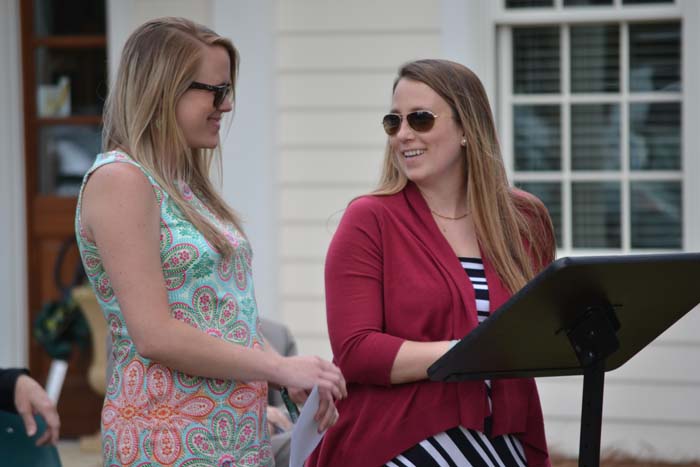Genealogical Library finds a new home at TU
Published 12:20 pm Monday, April 24, 2017

- Holly Edelen Gainey, left, and Kate Edelen talked about what their grandmother Eugenia Smitha meant to them. The Thomasville Genealogical Library is in the Smitha Building, named after Eugenia Smith, on the Thomas University campus.
THOMASVILLE — The Thomasville Genealogical Library has a new home, ensconced perhaps in a suitable location.
A ribbon-cutting was held Saturday afternoon as the library’s new home at Thomas University’s Smitha Building was opened.
“It fits squarely with the mission of higher education to lift up people and serve the common good,” said TU President Dr. Andy Sheppard. “And it has happened at TU because great servant leaders like Jenny Smitha and Marguerite Williams made it possible.”
The genealogical library moved out of its longtime home at the corner of Jefferson and Broad streets in October 2015, moving 1,000 boxes, volumes and microfilm, said Jinanne Parrish of the library board. The board looked for a satisfactory place to rent and approached then-TU President Dr. Gary Bonvillian, Parrish said.
Instead of leasing a space, he said the library could renovate the Smitha Building. Saturday’s ceremony culminated six months of work.
Eugenia Smitha’s granddaughters Holly Edelen Gainey and Kate Edelen pointed out how proud their grandmother would be to see the finished product.
“I know she would be very proud and very grateful to see how far the university has come and how much it has accomplished,” Edelen said. “My grandmother was always a motivator. She believed more education led to more growth and more opportunities.”
The genealogical library started out in 1988 in one room in the Thomas County Cultural Center, noted Mark Parker of the Williams Foundation, but as Flowers Foods needed more office space, a four-way partnership between the library, the city of Thomasville, Flowers and Thomas University was forged.
“I think we passed the litmus test Marguerite Williams would have had,” Parker said.
Sheppard said genealogical research has several practical expressions, helping to satisfy personal curiosity and improving well-being. It also has an academic element because it adds detail to historical events, preserves culture and provides support for broader theological questions.
“Genealogical research helps to create well-adjusted people who function positively in society,” Sheppard said. “What children learn through family history, especially one that includes both the good and the bad, is that they are part of something bigger than themselves. They also discover that they are not captive to a history and can write their own chapter for the story. Those two things translate into better coping skills for young people when facing challenges. And they grow up to be the people you want to have in your community because they have a strong sense of themselves in relation to others.”
Sheppard also thanked architect Ray Finger and Don Shearer, the project manager for Barber Construction, for their efforts.
Editor Pat Donahue can be reached at (229) 226-2400 ext. 1806.



